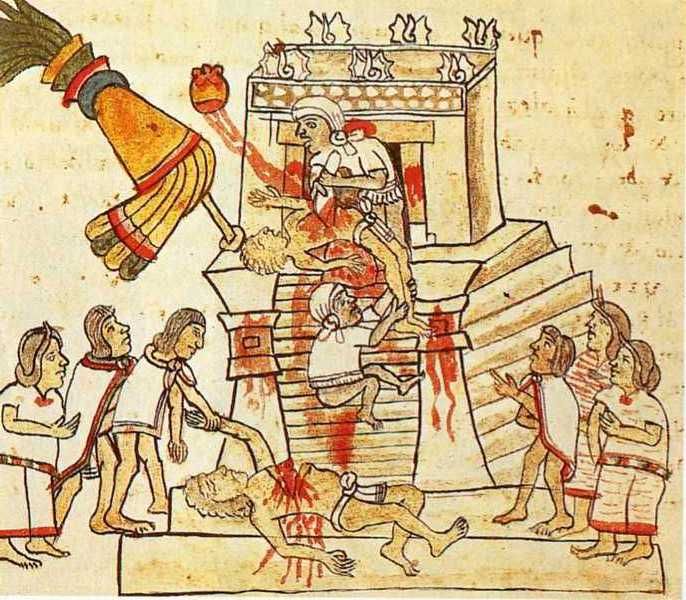From: Tim Brinkhof, 'The mysterious origins of human sacrifice', The Past May 24, 2022
https://bigthink.com/the-past/human-sacrifice-ritual-history
The disappearance of sacrifices
"In classical antiquity, human sacrifice was already considered a thing of the past by many world cultures. When Rome was still a kingdom, citizens were at times sacrificed to appease the gods. According to historian Pliny the Elder, however, human sacrifices virtually disappeared during the republic and were abolished completely by senatorial decree in 97 BC. The killing of living, breathing humans — a practice by then associated with Barbarian tribes and looked down upon by Roman commentators — was replaced by the slaughter of animals and the burning of effigies.
Part of the history of human sacrifice may be filled in by religious texts. For example, the Binding of Isaac, a story from the Book of Genesis, describes how Abraham — the patriarch of Judaism, Christianity, and Islam who is believed to have lived sometime between 2,150 and 1,975 BC — attempted to sacrifice his only son Isaac at the bequest of the Hebrew god Yahweh. But before Abraham is able to complete the ritual, he is stopped by an angel. Having already proven the extent of his devotion, Abraham is allowed to sacrifice a ram in his son’s stead.
The Binding of Isaac is not only a story but also a form of religious instruction that has had a tangible effect on the internal organization of three major religions. According to Yoseph Milman, professor emeritus at the Department of Hebrew and Comparative Literature at the University of Haifa in Israel, the narrative serves as an “etiological myth” that explains the origin or, in this case, the disappearance of a particular phenomenon. The story, Milman writes, gives a reason for the “transition from human sacrifice to animal sacrifice and the ultimate sanctity of human life.”
From a contemporary perspective, human sacrifice seems like an exceptionally cruel and misguided enterprise. However, there is reason to believe that we would not be where we are today without this — for lack of a better word — primitive ritual. Data driven studies, for one, suggest human sacrifices helped communities take on more complex forms. Perhaps this is because the ritual helped people stick together in service of a greater good. After all, the victims of human sacrifice did not die in vain, but were killed for the benefit of the living."
☙
Descendant of:
MYTHOLOGY AND THE CLASSICAL WORLD RELIGIONTexts with this theme:
- Am See (Sitz ich im Gras), D 124 (Johann Baptist Mayrhofer)
- Das Abendrot, D 236 (Ludwig Theobul Kosegarten)
- Lebens-Melodien, D 395 (August Wilhelm Schlegel)
- Der Kampf, D 594 (Friedrich von Schiller)
- Uraniens Flucht, D 554 (Johann Baptist Mayrhofer)
- Prometheus, D 674 (Johann Wolfgang von Goethe)


